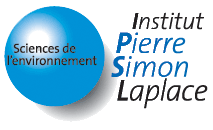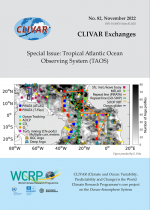International Workshop "New strategies for evaluating ENSO processes in climate models"
International Workshop "New strategies for evaluating ENSO processes in climate models"
Paris, France
Wednesday, 17 November, 2010 - Friday, 19 November, 2010
 |
 |
 |
Motivation
El Niño - Southern Oscillation (ENSO) is the dominant mode of interannual climate variability with worldwide weather and societal impacts. Because ENSO involves a complex interplay of numerous ocean and atmospheric processes, accurately modelling this climate phenomenon with coupled General Circulation Models (GCMs) and understanding and anticipating its behaviour on seasonal to decadal and longer time scales still poses a formidable challenge. Over the past few years, new promising methods have emerged which can improve ENSO simulation, for example by combining ENSO theoretical frameworks and GCM modelling or by using initialised hindcasts and by utilising the recent wealth of high-quality observations to understand errors and their growth in forecast systems. By focusing on the very key processes affecting ENSO dynamics, these new approaches have a strong potential to accelerate progress and improve representation of ENSO in complex climate models. Not only can these new methods help address the question of whether ENSO is changing in a changing climate, but potentially they can also improve reliability of centennial-scale climate projections.
The World Climate Research Program (WCRP) has long recognised the central importance of an improved understanding and predictability of ENSO by encouraging coordinated research in tropical climate variability via its different expert Panels (Pacific, Indian, Seasonal to Interannual Prediction,...) The next Coordinated Model Intercomparison Project (CMIP5), which will feed into the IPCC 5th Assessment, provides a new opportunity to evaluate current research in the process-based evaluation of ENSO in GCMs.
Main goal
The workshop aims to present and discuss emerging new methods for the process-based evaluation of ENSO in GCMs, their use in multi-model assessments and identify future directions and associated challenges.
Specific goals
a) To make an inventory of the existing approaches to evaluate ENSO processes in GCMs; compare, contrast and discuss the relative merits of these approaches as for example applied to CMIP3;
b) To review the potential of methods bridging ENSO theoretical frameworks and GCM modelling; and,
c) To review the observing system and available data for the evaluation of ENSO in GCMs.
Scientific Organizing Committee
Eric Guilyardi (IPSL/LOCEAN, France)
Andrew Wittenberg (NOAA, USA)
Alexey Fedorov (Yale University, USA)
Fei-Fei Jin (University of Hawaii, USA)
Mat Collins (Univeristy of Exeter, UK)
De-Zheng Sun (NOAA, USA)
Wenju Cai (CSIRO, Australia)
Meeting presentations
| SPEAKER | TITLE |
|
Session 1: Overview presentations: ENSO observation, theory, change |
|
|
Eric Guilyardi |
|
|
David Battisti |
|
|
Mike McPhaden |
|
|
Arun Kumar |
|
|
Scott Power |
|
|
Pascale Braconnot |
|
|
Mat Collins |
|
|
David Battisti |
A New Tool for Evaluating the Physics of Coupled Atmosphere-Ocean Variability in Nature and in General Circulation Models |
|
Session 2: ENSO in GCMs |
|
|
Eric Guilyardi |
|
|
Alexey Fedorov |
|
|
De-Zheng Sun |
The effect of ENSO on the tropical Pacific mean state: a new way to assess ENSO in GCMs |
|
Fei-Fei Jin |
|
|
Boris Dewitte |
|
|
Antonietta Capotondi |
Temporal structure of Tropical Pacific interannual variability in 20th century coupled simulations |
|
Andrew Wittenberg |
|
|
Masahiro Wanatabe |
|
|
Sarah Ineson |
|
|
Session 3: Evaluating ENSO processes in CGCMs |
|
|
Ben Kirtman |
The impact of Atmospheric and Oceanic Resolution on ENSO Simulation |
|
Jong-Seong Kug |
ENSO Sensitivity to convective trigger in a coupled GCM |
|
Rich Neale |
|
|
Sang Wook Yeh |
|
|
Sulagna Ray |
|
|
Jin-Yi Yu |
|
|
Pedro di Nezio |
Sensitivity of the thermocline feedback to global warming in coupled GCMs: Implications for changes in ENSO amplitude |
|
Julien Boucharel |
|
|
Ken Sperber |
MJO Simulation/Forecasting Diagnostics and Metrics |
|
Session 4: New approaches, wider perspectives and ENSO teleconnections |
|
|
Noel Keenlyside |
Quantifying different sources of error in ENSO seasonal predictions and relating them to model systematic errors |
|
Benoit Vannière |
|
|
Yukiko Imada |
Improvement to ENSO in AOGCM by introducing a new parameterization of Tropical Instability Waves |
|
Pascal Terray |
Mid and high latitudes influence on ENSO: a review |
|
Wenju Cai |
Impact of the Indonesian Throughflow on ENSO properties in a CGCM |
|
Chunzai Wang |
Influence of Equatorial Atlantic Variability on Pacific ENSO |
|
Jérôme Vialard |













